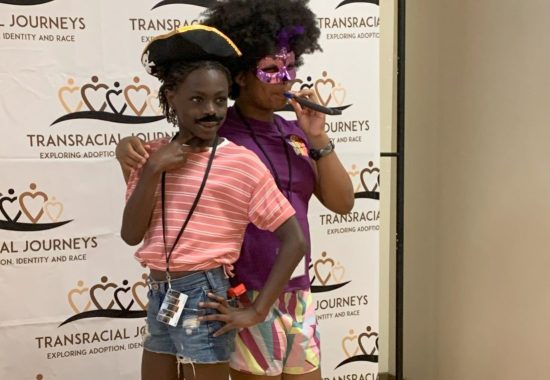by TRJ Parent Avril McInally
It’s now autumn. The leaves are changing color. The days are getting shorter. Some of us are getting ready to celebrate Halloween at the end of the month. Whether or not we participate in this holiday, we can all relate to masks for one reason or another. They’ve been used throughout the ages in religious ceremonies, as works of art, as occupational accoutrements and as protection from disease. A mask is a cover for the face or a disguise. It may be used to frighten, shock or simply amuse others. A mask hides what lies behind it.
The National Council for Adoption states, “The statistics are revealing. A third of adolescents referred for psychotherapy are adopted. Adolescence is the peak period for psychiatric referrals in the life of the adoptee. Approximately 5–17 percent of adolescent adoptees receive mental health services, although they represent only 2 percent of the population.1 While research suggests that these statistics may reflect the fact that for a variety of reasons, adoptive parents may be more inclined to seek out services for their teens, it is also true that many adopted teens need specialized support. Adolescence is a time when adoptees struggle with an extra layer of challenges related to their identity, their future, and their past. The “normal” or typical developmental tasks of the teen years are intensified by adoption, particularly if teens are being raised by parents of a different race or culture.”
As we think about the impact of loss, grief, and differences of culture and race it stands to reason that transracially adopted persons might wear masks more frequently than their non-adopted peers. October 10, 2023 is World Mental Health Day and we can dig deeper into the meanings behind masks and the practice or habit of masking for children with intersectional identities. “Mental health masking means camouflaging or suppressing your mental health symptoms so you fit in with others.” “People mask their mental health symptoms because they want to maintain their relationships, keep their jobs, and be socially accepted.” To put a finer point on this for our community, it’s been widely discussed that adopted persons often put on masks to shield their caregivers or because there is seems to be little validation or support when they do share feelings. One of April’s prompts from her October suite of cards asks, “have you ever tried to hide or mask your feelings?” It’s a good question to ask. Consider also asking another of her prompts for the month “do you think people wear masks that we can’t see?”
Make time and space for having these conversations with your children. Use the props of masks and masking to help bring awareness to and support of your children’s mental health this October.
This post is from our October, 2023, newsletter. If you would like to get our newsletter in your inbox each month, as well as information about our annual Transracial Journeys Family Camp and our monthly Zoom call to provide support for our transracial adoption parents please subscribe.

